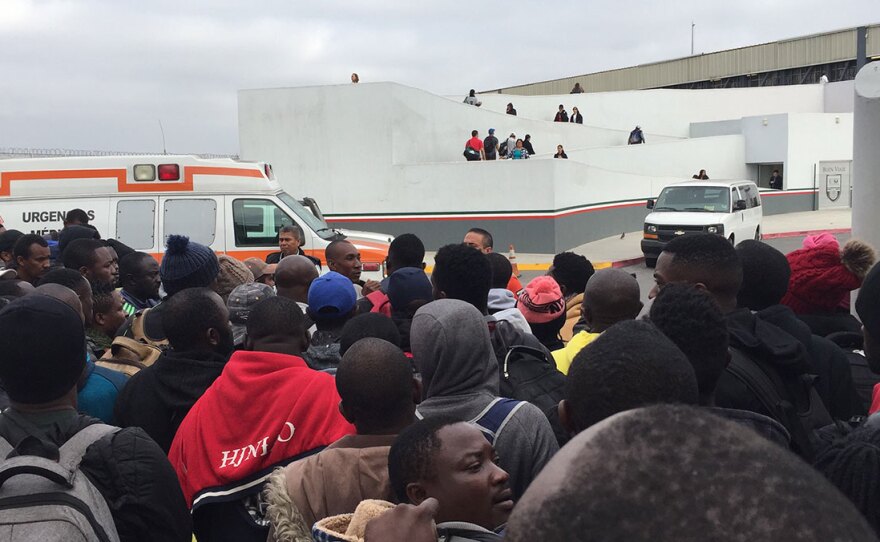The number of Cameroonians requesting asylum in the U.S. has increased in recent years according to data from UNHCR, the UN refugee agency. The data show a 56% increase in the number of people from Cameroon seeking asylum in the U.S. between 2014 and 2016 around the time atrocities fueled by political violence began in that country.
Last week, a group of about 50 asylum seekers from Cameroon protested the immigration process in Tijuana. They say they have been waiting a month or more to request asylum and are running out of money.
RELATED: Migrants From Cameroon Protest Immigration Process In Tijuana
“The American government and the Mexican government should understand that we came a long way. From Africa, from Cameroon to this place, it took us about four or five months," said Brown, one of the asylum seekers who only gave KPBS his first name. "We have spent a lot of money. Being here we don't have money to eat, we have to pay our hotel bills. We are stranded. So we are pleading on both governments to see how they can help us.”
KPBS can't confirm the exact number of people from Cameroon waiting in Tijuana to request asylum in the U.S. But there are many stories such as Brown’s. Most, like him, are members of the English-speaking minority which has been facing intense government oppression since 2016.
Andrea Barron, advocacy & outreach program manager with Torture Abolition and Survivors Support Coalition, joined Midday Edition Thursday to talk about the conditions driving people from Cameroon to the U.S.-Mexico border.








